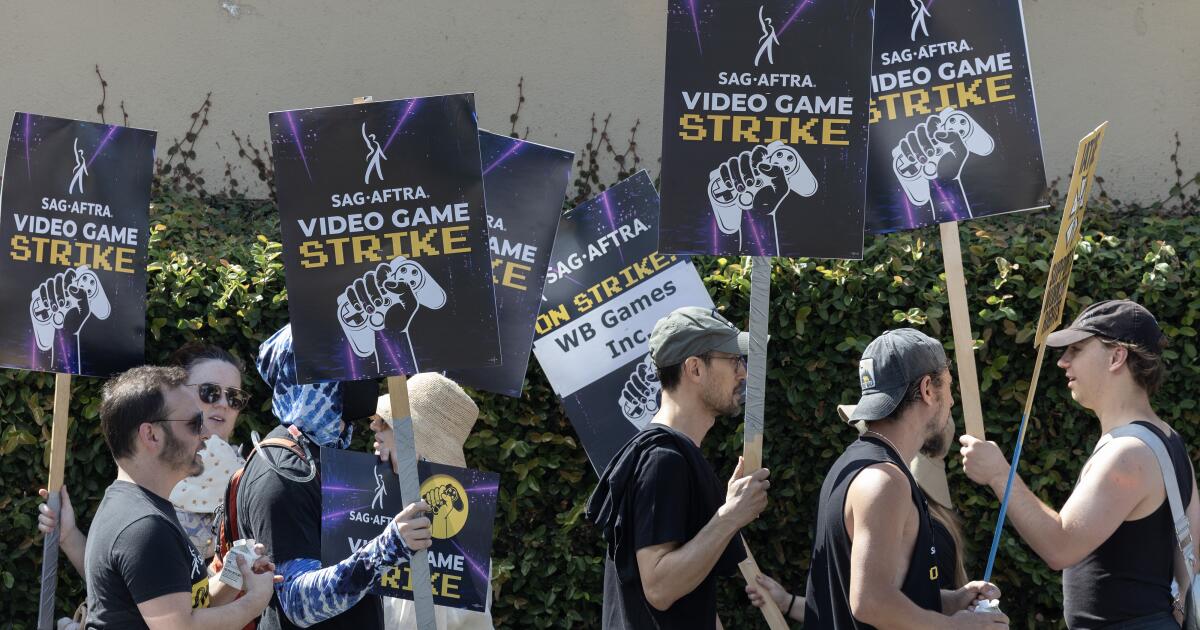On May 10, 2024, South Africa filed a request for the indication of additional provisional measures and the modification of the International Court of Justice (“ICJ” or “Court”)’s prior provisional measures decisions in its case against Israel. (See Samuel Estreicher & Klara Nedrelow, The World Court Lacks Any Plausible Basis for Directing Provisional Measures Against Israel Under the Genocide Convention, Justia Verdict, (Feb. 22, 2024)). South Africa’s most recent request for provisional measures marks the fourth such request in five months. In its request, South Africa asked the court to indicate three provisional measures including requiring Israel to “cease its military operations in the Gaza strip, including in the Rafah Governorate, and withdraw from the Rafah Crossing and immediately, totally, and unconditionally withdraw the Israeli army from the entirety of the Gaza strip.” (Application of Convention on Prevention and Punishment of Genocide (S. Afr. v. Isr.), Order, 2024 I.C.J., 4 ¶ 14 (May 24)). South Africa also requested that the Court order Israel to
[T]ake all effective measures to ensure and facilitate the unimpeded access to Gaza of United Nations and other officials engaged in the provision of humanitarian aid and assistance to the population of Gaza, as well as fact-finding missions, internationally mandated bodies and/or officials, investigators, and journalists, in order to assess and record conditions on the ground in Gaza.
(Ibid). Of the four requests submitted by South Africa, the ICJ granted provisional measures on three occasions, each without finding that Israel committed any act of genocide. The first was the January 26, 2024 Order which provided that Israel “shall in accordance with its obligations under the Convention on the Prevention and Punishment of the Crime of Genocide, in relation to Palestinians in Gaza, take all measures within its power to prevent the commission of all acts within the scope of Article II of this Convention.” (Application of Convention on Prevention and Punishment of Genocide (S. Afr. v. Isr.), Order, 2024 I.C.J., 24-26 ¶ 86 (January 26)). The ICJ modified their January 26th Order with a grant of additional provisional measures on March 28, 2024. The March 28th Order included requiring Israel to ensure “the unhindered provision at scale by all concerned of urgently needed basic services and humanitarian assistance, including food, water, electricity, fuel, shelter, clothing, hygiene and sanitation requirements, as well as medical supplies and medical care to Palestinians throughout Gaza,” and to ensure that Israel’s “military does not commit acts which constitute a violation of any of the rights of the Palestinians in Gaza as a protected group under the Convention on the Prevention and Punishment of the Crime of Genocide, including by preventing, through any action, the delivery of urgently needed humanitarian assistance.” (Application of Convention on Prevention and Punishment of Genocide (S. Afr. v. Isr.), Order, 2024 I.C.J., 13 ¶ 51 (March 28)).
The May 24, 2024 Order
South Africa filed its May 2024 application under Article 76 paragraph 1 of the Statute of the ICJ Court, which states that “the Court may, at any time before the final judgement in the case, revoke or modify any decision regarding provisional measures, if, in its opinion, some change in the situation justifies such revocation or modification.” (Statute of the International Court of Justice, art. 76, ¶ 1). The ICJ conducted a two-prong analysis, first determining whether “the situation that warranted the decision set out in its Order of 28 March 2024 has changed since that time,” and if so, “whether such a change justifies a modification of its earlier decision concerning provisional measures.” (Application of Convention on Prevention and Punishment of Genocide (S. Afr. v. Isr.), Order, 2024 I.C.J., 6 ¶ 21 (May 24)).
The Court concluded that “the military offensive in Rafah and the resulting repeated large-scale displacement of the already extremely vulnerable Palestinian population in the Gaza Strip, constitute[d] a change in the situation within the meaning of Article 76 of the Rules of Court.” (Id. at 8 ¶ 29). The ICJ next determined that “the provisional measures indicated in its Order of 28 March 2024, as well as those reaffirmed therein, do not fully address the consequences arising from the change in the situation explained above, thus justifying the modification of these measures.” (Id. at 9 ¶ 30). The Court offered no explanation, however, as to why the previous grants of provisional measures in January and March 2024 did not address the situation in Rafah.
After determining that the conditions under Article 76 paragraph 1 were met for South Africa’s May 2024 application, the Court reaffirmed the provisional measures indicated in its January 2024 and March 2024 orders and indicated three additional measures. The first new measure ordered Israel to “immediately halt its military offensive, and any other action in the Rafah Governorate, which may inflict on the Palestinian group in Gaza conditions of life that could bring about its physical destruction in whole or in part.” (Id. at 15 ¶ 57). The second and third measures required Israel to “maintain open the Rafah crossing for unhindered provision at scale of urgently needed basic services and humanitarian assistance,” and to “take effective measures to ensure the unimpeded access to the Gaza Strip of any commission of inquiry, fact-finding mission or other investigative body mandated by competent organs of the United Nations to investigate allegations of genocide.” (Ibid). Two Judges wrote dissenting opinions to the May 2024 Order while three other Judges wrote separately. Each of the three judges who wrote separately, however, interpreted the Court’s order requiring Israel to “halt its military offensive” in Rafah differently, demonstrating the lack of cohesion even among the judges who voted in favor of the May 2024 order.
Separate Opinions of Judges Nolte (Germany), Aurescu (Romania), and Tladi (South Africa)
Judge Nolte’s separate declaration cautioned that the ICJ “can play only a limited role in resolving the situation,” and that the Court “must be careful not to overstep the limits of what it can and should do.” (Application of Convention on Prevention and Punishment of Genocide (S. Afr. v. Isr.), Order, 2024 I.C.J. 2, 1 ¶ 2 (May 24) (separate opinion by Nolte, J.)). Judge Nolte voted in favor of the May 2024 order “after considerable hesitation,” because of the “extraordinary situation resulting from the Israeli military offensive in Rafah.” (Id. at 2, 1 ¶ 3). He interpreted the Court’s ambiguous first provisional measure as requiring Israel to “limit the current military offensive in Rafah as far as it could endanger the rights of the Palestinian people under the Genocide Convention,” and that the Court’s order “does not address [Israel’s] military operations outside Rafah.” (Id. at 2, 7 ¶ 25). Judge Nolte further stated that he is “unconvinced that the evidence presented to the Court provides plausible indications that the military operation undertaken by Israel as such is being pursued with genocidal intent,” however, at the same time, Judge Nolte also determined that “Israel has not sufficiently demonstrated that it can enable the provision of urgently needed basic services and humanitarian assistance to address the adverse conditions of life faced by Palestinians’ without limiting its current military offensive in Rafah.” (Id. at 2, 5 ¶ 18). As the Court’s jurisdiction over the matter is predicated under the Genocide Convention, it is unclear how Judge Nolte can determine that there is no plausible indication that Israel’s military operation is being pursued with genocidal intent, and yet also find that the indication of additional provisional measures was adequately justified by the Court.
Judge Aurescu wrote separately to clarify that the provisional measure “regarding the halt of the military offensive,” does “not affect in any way the legitimate right of Israel to undertake actions, which should be conducted in strict conformity with international law…to protect its civilian citizens and to free the hostages still held in the Rafah area by Hamas and other armed groups.” (Application of Convention on Prevention and Punishment of Genocide (S. Afr. v. Isr.), Order, 2024 I.C.J. 2, 2 ¶ 6 (May 24) (separate opinion by Aurescu, J.)). Judge Aurescu also declared that the “reference in paragraph 56 of the [May 2024] Order to the grave concern of the Court over the fate of the hostages abducted during the 7 October 2023 attack is, in my view, a welcome, but insufficient statement.” (Id. at 2, 2 ¶ 5). Even further, he determined that “the previous two Court’s Orders already address in a comprehensive manner the present situation, which was foreseen at the time of the two Orders.” (Id. at 2, 1 ¶¶ 1, 4). Judge Aurescu nonetheless voted in favor of the May 2024 Order because “the situation in Gaza, especially in the Rafah Governorate, has reached a critical level of humanitarian catastrophe.” (Ibid). While the humanitarian crisis in Rafah is especially grave, this does not change the fact that the ICJ’s jurisdiction over South Africa’s claim against Israel arises only under the Genocide Convention. Therefore, any provisional measures that do not address the rights of the Palestinian people under the Genocide Convention cannot be effectuated by the Court. Put another way, if there is no plausible basis for finding that Israel is acting with the intent to destroy in whole or in part the Palestinian people through its operation in Rafah, regardless of the unfolding humanitarian situation, the Court does not have jurisdiction to indicate provisional measures. Judge Aurescu goes even further beyond the jurisdiction of the Court by determining “that the Court could have used the opportunity of the present Order…to ask[] Israel to take all necessary and effective measures to implement with immediate effect the UN Security Council resolution [“UNSCR”] 2728.” (Id. at 2, 3 ¶ 8). UNSCR 2728 “demanded an immediate ceasefire for the month of Ramadan respected by all parties leading to a lasting sustainable ceasefire.” (Ibid). Judge Aurescu would have seen the implementation of resolution 2728 in the Court’s May 2024 Order as an “innovation in the Court’s jurisprudence…inaugurating new, promising cooperation avenues between the two principal organs of the United Nations.” (Ibid). Once again, any implementation of a blanket ceasefire demand outside of the boundaries of the Genocide Convention are beyond the scope of the ICJ’s jurisdiction in the present case and most certainly would represent an “innovation” and departure from the Court’s past jurisprudence.
Finally, Judge Tladi wrote separately to declare his interpretation of the May 2024 Order. He determined that the Court, “in explicit terms, ordered the State of Israel to halt its offensive in Rafah.” (Application of Convention on Prevention and Punishment of Genocide (S. Afr. v. Isr.), Order, 2024 I.C.J. 2, 3 ¶ 8 (May 24) (separate opinion by Tladi, J.)). Therefore, unlike Judges Aurescu and Nolte, Judge Tladi believes that the Court’s May 2024 Order requires Israel to immediately cease its military operation and effectuate a unilateral ceasefire with Hamas. Acknowledging Israel’s right to self-defense and protection of its citizens, he nonetheless determined that Israel’s military operations in Gaza entail “a gross disproportion[ate]” response to the October 7th attacks by Hamas and that Israel should not be allowed to “engage in limitless operations causing the catastrophic consequences that have been so widely reported.” (Id. at 2, 3 ¶ 15). Judge Tladi strays beyond the Court’s remit under the Genocide Convention to invoke the principle of “proportionality” addressed under International Humanitarian Law, (“IHL”) which—aside from the fact no IHL violations were established—should not have been a factor in Judge Tladi’s decision to vote in favor of the May 2024 Order. (See generally Samuel Estreicher, Privileging Asymmetric Warfare (Part II)?: The ‘Proportionality’ Principle Under International Humanitarian Law, 12 Chi. J. Int’l L. 143 (2011)).
Dissenting Opinions of Vice President Sebutinde (Uganda) and Judge Ad Hoc Barak (Israel)
The dissenting opinions of Vice President Sebutinde and Judge Ad Hoc Barak highlight the discordance among the judges on the Court. Vice President Sebutinde acknowledged the confusing phrasing in the May 2024 Order: “ordering Israel to ‘halt its military offensive…in the Rafah Governorate’, is susceptible to ambiguity and could be misunderstood or misconstrued as ordering an indefinite, unilateral ceasefire, thereby exemplifying an untenable overreach on the part of the Court.” (Application of Convention on Prevention and Punishment of Genocide (S. Afr. v. Isr.), Order, 2024 I.C.J. 2, 1 ¶ 2 (May 24) (dissenting opinion by Sebutinde, J.) (emphasis added)). Sebutinde determined that “a suspension of Israel’s military offensive in Rafah, whether temporary or indefinite, has no link to South Africa’s plausible rights or Israel’s obligations under the Genocide Convention,” and that such a directive “amounts to micromanaging the hostilities in Gaza by restricting Israel’s ability to pursue its legitimate military objectives, while leaving its enemies, including Hamas, free to attack without Israel being able to respond.” (Id. at 2, 2 ¶ 2 (emphasis added)). Vice President Sebutinde also voted against the portion of the May 2024 Order requiring Israel to maintain open the Rafah crossing for the provision of humanitarian aid because “existing provisional measures are robust enough and already adequately cover the current situation,” and that “without Egypt’s co-operation, Israel alone cannot maintain open the Rafah Crossing,” therefore rendering this portion of Court’s order “impracticable.” (Id. at 2, 8 ¶ 23).
In his dissenting opinion, Judge ad hoc Barak acknowledged that “one may think that Israel should do more to protect civilians in Rafah; however, that the “Court can only indicate measures to protect rights that are plausible under the Genocide Convention.” (Application of Convention on Prevention and Punishment of Genocide (S. Afr. v. Isr.), Order, 2024 I.C.J. 2, 6 ¶ 24 (May 24) (dissenting opinion by ad hoc Barak, J.)). For Judge ad hoc Barak, it is not plausible for Israel’s conduct to provide the basis for an inference of a special or specific intent to destroy the Palestinian people in whole or in part as required by the Genocide Convention when Israel continues to take measures to mitigate the harm suffered by Palestinians, including by “provid[ing] tents, humanitarian aid, and field hospitals,” and by “issu[ing] warnings and build[ing] humanitarian zones.” (Id. at 2, 7 ¶ 24). Judge ad hoc Barak concluded that the ICJ’s May 2024 Order marks yet another departure from its past precedent and it “weakens the régime of the Genocide Convention by using it (or misusing it) to arbitrate an armed conflict.” (Id. at 2, 7 ¶ 26).











